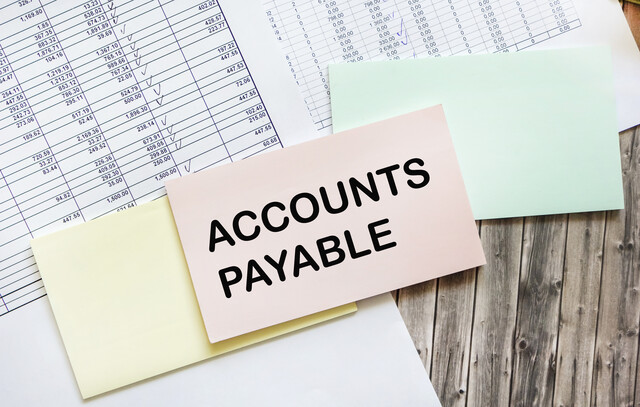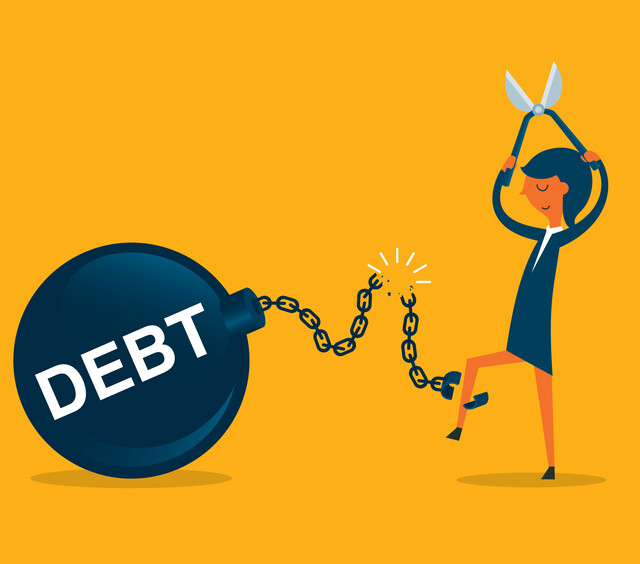Online Class: Personal Finance 101 — How to Manage Your Money

-
11Lessons
-
26Exams &
Assignments -
5Hours
average time -
0.5CEUs
Course Description
The Financial Freedom Journey
Embark on an imaginative journey towards mastering personal finance with our innovative course designed to transform your financial future. Picture this: you’re planning an exhilarating adventure to your dream destination. It starts with a vision—a dream of white sandy beaches and tranquil seas or perhaps the thrill of navigating through bustling city streets in a foreign land. This course uses the metaphor of planning a dream trip to illustrate the pathway to financial independence.
The process begins in your mind's eye, where dreaming and believing shape the contours of your financial landscape. Yet, dreams alone aren’t enough. Like any substantial journey, achieving financial freedom requires concrete steps—planning, execution, and eventually, the joy of experiencing your dreams come to life.
Throughout this course, your financial plan will unfold like a well-crafted travel itinerary. You'll start by plotting the course in the 'Plan' phase, where you’ll learn to manage your accounts, assess your financial health, and lay a strong foundation. This stage is about understanding where you stand today and setting the right course for tomorrow.
Moving into the 'Execute' phase, you'll tackle managing debts, building a robust credit score, and balancing your accounts to secure your financial future. This phase is akin to packing your bags and setting out on your journey, equipped with everything you need for success.
Finally, the 'Travel' phase allows you to reap the rewards of your hard work. Here, you'll learn how to grow your wealth, make smart investments, and possibly even start planning for retirement. It’s about enjoying the fruits of your labor, whether that’s on a beach in Oahu or enjoying the peace of mind that comes with financial security.
Why focus on personal finance? Imagine you're driving cross-country from New York to Los Angeles. Without a map, weather updates, or hotel bookings, your journey could be risky and fraught with uncertainty. Similarly, navigating your financial landscape without a plan can lead to missed opportunities and potential pitfalls. This course serves as your map, meteorologist, and travel agent, guiding you through the complexities of financial management.
As we delve into the nuances of personal finance, you'll discover that managing your money is not just about numbers; it’s about setting a course that aligns with your personal goals and dreams. Whether you’re just starting out or looking to refine your financial strategy, this course offers valuable insights and tools to help you manage, sustain, and grow your wealth effectively.
By the end of this course, you won't just be planning for financial success—you'll be living it.
Course Lessons
Lesson 1. Mastering Money: Essential Financial Strategies
 Lesson 1 Video
Lesson 1 Video Review Practice Worksheet: Lesson-1-WorkSheet-12114.pdf
Review Practice Worksheet: Lesson-1-WorkSheet-12114.pdf Lesson discussions: Reasons for Taking this Course
Lesson discussions: Reasons for Taking this Course Assessment: Lesson 1: Introduction
Assessment: Lesson 1: Introduction Assessment: Lesson 1 Review Exam
Assessment: Lesson 1 Review Exam
Lesson 2. Personal Finance Simplified
 Lesson 2 Video
Lesson 2 Video Review Practice Worksheet: Lesson-2-Activity-12115.pdf
Review Practice Worksheet: Lesson-2-Activity-12115.pdf Complete: Lesson 2 Activity
Complete: Lesson 2 Activity Assessment: Lesson 2: Assets
Assessment: Lesson 2: Assets Assessment: Lesson 2 Review Exam
Assessment: Lesson 2 Review Exam
Lesson 3. Understanding Your Assets: A Deep Dive into Liquidity
 Lesson 3 Video
Lesson 3 Video Review Practice Worksheet: Lesson-3-WorkSheet-12116.pdf
Review Practice Worksheet: Lesson-3-WorkSheet-12116.pdf Complete: Lesson 3 Activity
Complete: Lesson 3 Activity Assessment: Lesson 3: Liquid and Non-Liquid Assets
Assessment: Lesson 3: Liquid and Non-Liquid Assets Assessment: Lesson 3 Review Exam
Assessment: Lesson 3 Review Exam
Lesson 4. Reconciling Accounts: A Vital Financial Checkpoint
 Lesson 4 Video
Lesson 4 Video Review Practice Worksheet: Lesson-4-WorkSheet-12117.pdf
Review Practice Worksheet: Lesson-4-WorkSheet-12117.pdf Complete: Lesson 4 Activity
Complete: Lesson 4 Activity Assessment: Lesson 4: Checking
Assessment: Lesson 4: Checking Assessment: Lesson 4 Review Exam
Assessment: Lesson 4 Review Exam
Lesson 5. Securing Your Financial Future: A Deep Dive into Expert Saving Techniques
 Lesson 5 Video
Lesson 5 Video Review Practice Worksheet: Lesson-5-WorkSheet-12118.pdf
Review Practice Worksheet: Lesson-5-WorkSheet-12118.pdf Complete: Lesson 5 Activity
Complete: Lesson 5 Activity Assessment: Lesson 5: Savings Savvy
Assessment: Lesson 5: Savings Savvy
Lesson 6. From Pensions to Passions: Diverse Ways to Increase Your Earnings
 Lesson 6 Video
Lesson 6 Video Review Practice Worksheet: Lesson-6-Downloadable-12119.pdf
Review Practice Worksheet: Lesson-6-Downloadable-12119.pdf Assessment: Exam 6
Assessment: Exam 6 Assessment: Lesson 6 Review Exam
Assessment: Lesson 6 Review Exam
Lesson 7. Mastering Debt Management: A Beginner's Guide
 Lesson 7 Video
Lesson 7 Video Review Practice Worksheet: Lesson-7-WordSearch-12120.pdf
Review Practice Worksheet: Lesson-7-WordSearch-12120.pdf Assessment: Lesson 7: Debt
Assessment: Lesson 7: Debt Assessment: Lesson 7 Review Exam
Assessment: Lesson 7 Review Exam
Lesson 8. Beyond Plastic: A Guide to Credit Management
 Lesson 8 Video
Lesson 8 Video Review Practice Worksheet: Lesson-8-WordSearch-12121.pdf
Review Practice Worksheet: Lesson-8-WordSearch-12121.pdf Assessment: Lesson 8: Credit Cards
Assessment: Lesson 8: Credit Cards Assessment: Lesson 8 Review Exam
Assessment: Lesson 8 Review Exam
Lesson 9. Tailoring Financial Goals and Risk: A Deep Dive
 Lesson 9 Video
Lesson 9 Video Review Practice Worksheet: Lesson-9-WorkSheet-12122.pdf
Review Practice Worksheet: Lesson-9-WorkSheet-12122.pdf Complete: Lesson 9 Activity
Complete: Lesson 9 Activity Assessment: Lesson 9: Investments
Assessment: Lesson 9: Investments Assessment: Lesson 9 Review Exam
Assessment: Lesson 9 Review Exam
Lesson 10. Mastering Loans: A Path to Financial Literacy
 Lesson 10 Video
Lesson 10 Video Review Practice Worksheet: Lesson-10-Activity-12123.pdf
Review Practice Worksheet: Lesson-10-Activity-12123.pdf Assessment: Lesson 10: Loans
Assessment: Lesson 10: Loans
Lesson 11. Harnessing the Power of Financial Literacy and Technology
 Lesson 11 Video
Lesson 11 Video Review Practice Worksheet: Lesson-11-WordSearch-12124.pdf
Review Practice Worksheet: Lesson-11-WordSearch-12124.pdf Lesson discussions: End of Course Poll; Reasons for Taking this Course; Course Comments
Lesson discussions: End of Course Poll; Reasons for Taking this Course; Course Comments Complete: Lesson 11 Activity
Complete: Lesson 11 Activity Assessment: Lesson 11: Conclusion
Assessment: Lesson 11: Conclusion Assessment: Final Exam
Assessment: Final Exam
Learning Outcomes
- Define the significance of establishing an emergency fund in achieving financial security and preparedness.
- Demonstrate the process of creating a personal budget by categorizing monthly expenditures and identifying areas for potential savings.
- Demonstrate the ability to track and analyze cash flow patterns over a two-week period for improved financial management and planning.
- Recognize and categorize personal financial assets and liabilities to accurately calculate net worth using real-life financial scenarios.
- Define and differentiate between liquid and non-liquid assets by providing three distinct characteristics of each asset type.
- Develop a personal cash flow chart to identify one specific financial scenario: negative, zero, or positive cash flow, and propose two actions to address or optimize this financial condition.
- Define the role of checking accounts in modern banking by identifying their primary features and functions, including transactional methods and fees.
- Demonstrate the process of reconciling a checking account by accurately comparing personal transaction records with bank statements to identify discrepancies and prevent errors.
- Define the importance of liquid assets and their role in securing financial stability during economic fluctuations.
- Demonstrate the ability to strategically allocate savings in various financial accounts to maximize returns and ensure FDIC coverage.
- Define key financial terms, such as Social Security and pension, and explain their roles in personal income generation strategies.
- Identify and apply three actionable methods to augment personal income, such as sharing living space or monetizing hobbies, by utilizing real-world examples.
- Define key financial priorities by categorizing monthly expenses into essential (e.g., housing, utilities) and non-essential (e.g., entertainment), ensuring a sustainable budgeting approach.
- Demonstrate mastery of lesson content at levels of 70% or higher.
Additional Course Information

- Document Your Lifelong Learning Achievements
- Earn an Official Certificate Documenting Course Hours and CEUs
- Verify Your Certificate with a Unique Serial Number Online
- View and Share Your Certificate Online or Download/Print as PDF
- Display Your Certificate on Your Resume and Promote Your Achievements Using Social Media

Student Testimonials
- "Overall, this course was helpful, which inspired me to continue my financial journey, live within my means and stay financially disciplined. All the materials were great, really enjoyed the videos of all the lessons, fun and educating. Thank you!" -- Patricia W.
- "This course was very helpful in getting me to understand how to manage personal finances. The information, resources, and videos provided were all great tools. I cannot think of anything else that should be added or included in this educational course." -- Abel G.
- "This course was extremely helpful for my husband and I! We learned so much about financial matters and have started to execute the plan! Thank you so much for this knowledge and also for the positive feedback from my assignments!" -- Layla C.
- "I am grateful to the instructor for creating this course and for making the material easy to follow and digest. I don't know what other classes/courses if any, this instructor might have available, but I might be willing to take them as well." -- Julie H.
- "Excellent course and would like to recommend this course to others to follow." -- Ravindrarajah A.
- "Outstanding instructor." -- Todd A.
- "I was very pleased with this course." -- Sarah M.
- "The instructor was beyond excellent." -- Janet D.
- "The instructor was very good and gave positive feedback. Found everything in the class most useful." -- Marlis W.
- "The Instructor seemed very nice, and answered me in a timely manner. I really enjoyed the lessons on debt, and the one on Loans. These were my favorites because of the fact I wanted to know more about this in my life. I am not overwhelmed with debt but don't want to be!" -- Theresa J.
Related Courses
-
 7 hours
0.7 CEUs
Introduction to Logic
+ More Info
7 hours
0.7 CEUs
Introduction to Logic
+ More Info
-
 8 hours
0.8 CEUs
Motivational and Public Speaking
+ More Info
8 hours
0.8 CEUs
Motivational and Public Speaking
+ More Info
-
 5 hours
0.5 CEUs
Operations Management 101
+ More Info
5 hours
0.5 CEUs
Operations Management 101
+ More Info
-
 7 hours
0.7 CEUs
Accounts Payable Training
+ More Info
7 hours
0.7 CEUs
Accounts Payable Training
+ More Info
-
 4 hours
0.4 CEUs
Business Analysis
+ More Info
4 hours
0.4 CEUs
Business Analysis
+ More Info
-
 7 hours
0.7 CEUs
Understanding Financial Statements
+ More Info
7 hours
0.7 CEUs
Understanding Financial Statements
+ More Info
-
 6 hours
0.6 CEUs
Sustainable Development for Business
+ More Info
6 hours
0.6 CEUs
Sustainable Development for Business
+ More Info
-
 14 hours
1.4 CEUs
QuickBooks 101
+ More Info
14 hours
1.4 CEUs
QuickBooks 101
+ More Info
-
 5 hours
0.5 CEUs
Accounts Receivable Training
+ More Info
5 hours
0.5 CEUs
Accounts Receivable Training
+ More Info
-
 7 hours
0.7 CEUs
Organizational Behavior in Business
+ More Info
7 hours
0.7 CEUs
Organizational Behavior in Business
+ More Info
-
 7 hours
0.7 CEUs
Financial Analysis 101: Planning and Control
+ More Info
7 hours
0.7 CEUs
Financial Analysis 101: Planning and Control
+ More Info
-
 14 hours
1.4 CEUs
QuickBooks Online
+ More Info
14 hours
1.4 CEUs
QuickBooks Online
+ More Info
-
 32 hours
3.2 CEUs
Accounting & Bookkeeping 101 for Everyone
+ More Info
32 hours
3.2 CEUs
Accounting & Bookkeeping 101 for Everyone
+ More Info
-
 17 hours
1.7 CEUs
Basic Math 101
+ More Info
17 hours
1.7 CEUs
Basic Math 101
+ More Info
-
 12 hours
1.2 CEUs
Business Math 101
+ More Info
12 hours
1.2 CEUs
Business Math 101
+ More Info
-
 5 hours
0.5 CEUs
Habits of Millionaires
+ More Info
5 hours
0.5 CEUs
Habits of Millionaires
+ More Info
-
 6 hours
0.6 CEUs
Debt Reduction
+ More Info
6 hours
0.6 CEUs
Debt Reduction
+ More Info
-
 2 hours
0.2 CEUs
Purchasing and Vendor Management 101
+ More Info
2 hours
0.2 CEUs
Purchasing and Vendor Management 101
+ More Info






